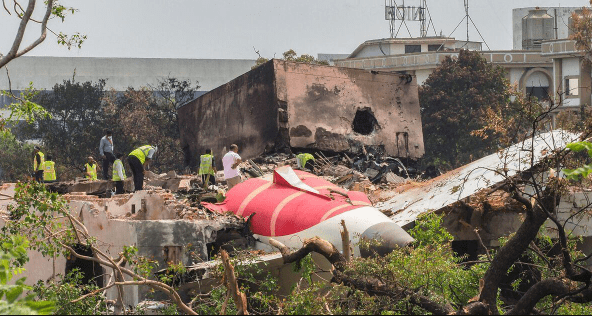Boeing and the U.S. Federal Aviation Administration (FAA) have reaffirmed the safety of fuel switch locking mechanisms across Boeing aircraft models, following scrutiny raised by the initial findings of a tragic Air India crash investigation.
The FAA issued a Continued Airworthiness Notification on 11 July, addressing concerns sparked by the preliminary probe into the Air India Boeing 787-8 crash that claimed 260 lives last month. The investigation raised questions regarding potential faults with engine fuel cutoff switches.
In a document reviewed by Reuters, the FAA stated: “Although the fuel control switch design, including the locking feature, is similar on various Boeing aeroplane models, the FAA does not consider this issue to be an unsafe condition that would warrant an Airworthiness Directive on any Boeing aeroplane models, including the Model 787.”
When approached for comment, the FAA declined to provide further information beyond the details of the issued notification.
Boeing, for its part, echoed the FAA’s assessment in a Multi-Operator Message dispatched to several airline operators in recent days. According to two sources directly familiar with the communication, the aircraft manufacturer did not recommend any additional action. Boeing also redirected media queries back to the FAA.
India’s Aircraft Accident Investigation Bureau (AAIB) referenced a 2018 FAA advisory in its preliminary report. The advisory encouraged, but did not require, operators of specific Boeing models, including the 787 Dreamliner, to inspect the locking mechanism of fuel cutoff switches to prevent unintended movement.
Air India had reportedly not conducted these suggested checks. The airline noted that the 2018 notice was a recommendation, not a regulatory directive. Despite this, records show that the aircraft involved in the incident had its throttle control module, including the fuel switches, replaced in both 2019 and 2023.
The report also confirmed: “all applicable airworthiness directives and alert service bulletins were complied with on the aircraft as well as engines.”
Prior to the crash, the UK had already flagged safety concerns related to the same fuel cutoff switch design – a warning that now appears even more relevant in light of recent findings surrounding the Air India incident.
The Indian chapter of the Air Line Pilots’ Association (ALPA), affiliated with the global federation headquartered in Montreal, has pushed back against early suggestions of pilot error.
In a strongly worded statement, ALPA India called for a “fair, fact-based inquiry” and insisted that the pilots’ union be allowed to participate in the ongoing probe, at the very least, as observers.
“The pilots body must now be made part of the probe, at least as observers,” said ALPA India President Sam Thomas during an interview with Reuters on Sunday.
In a publicly shared letter, the union pointed out that the preliminary report referenced the 2018 FAA advisory “concerning the fuel control switch gates, which indicates a potential equipment malfunction.”
Crucial details from the cockpit voice recorder have added to the mystery. In the final seconds of the flight, one pilot reportedly questioned the other about cutting the fuel supply. “The other pilot responded that he did not do so,” the report noted.
Investigators found that the fuel switches flipped from “run” to “cutoff” nearly simultaneously shortly after takeoff. However, the report did not clarify how or why this may have occurred.
Two U.S.-based safety experts expressed support for ALPA India’s appeal to join the probe as observers. However, both maintained that the current AAIB report appears impartial and balanced.
John Cox, a veteran pilot and former U.S. ALPA representative, said the preliminary findings were “objective and fair.”
As global attention turns to the final report, aviation authorities and industry experts alike are watching closely. With Boeing and the FAA standing firm on the safety of the fuel switch systems, and with pilot groups demanding a stronger voice in the investigation, the next phase of inquiry could prove pivotal.






